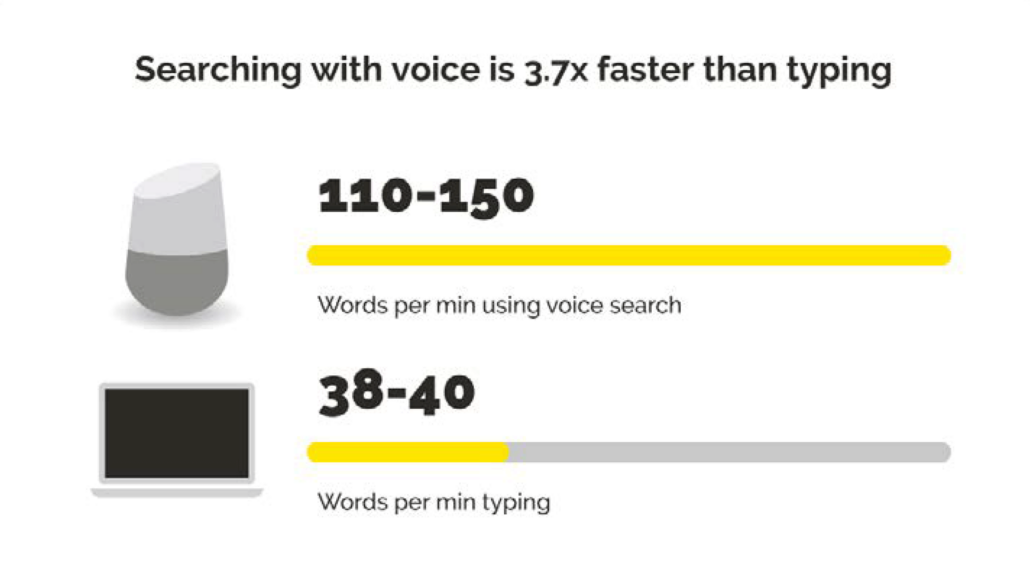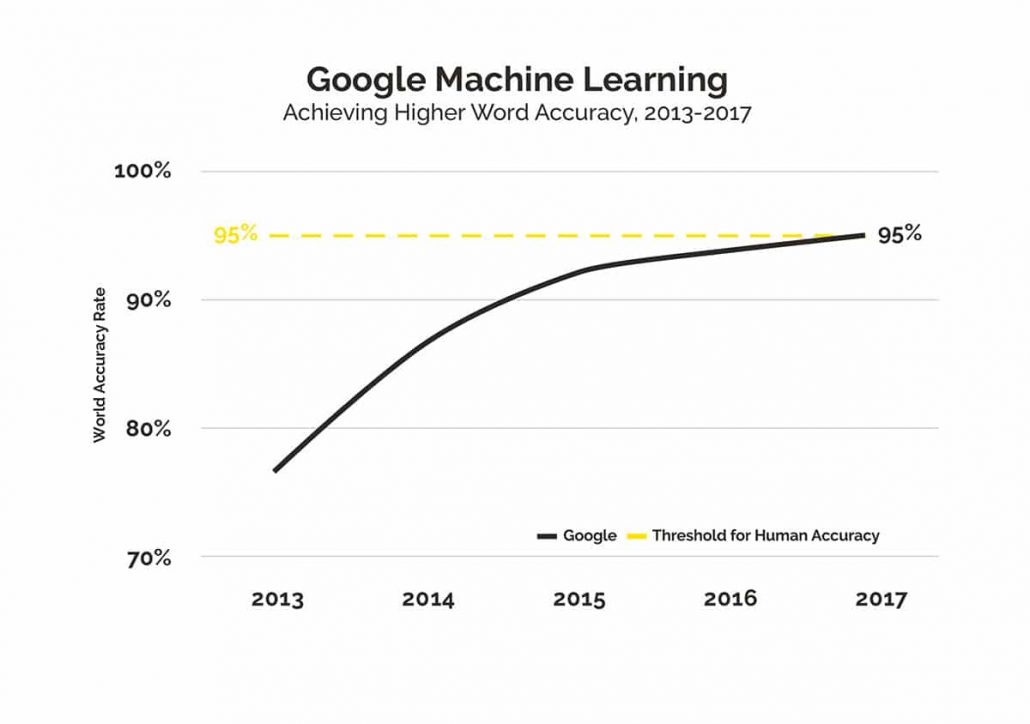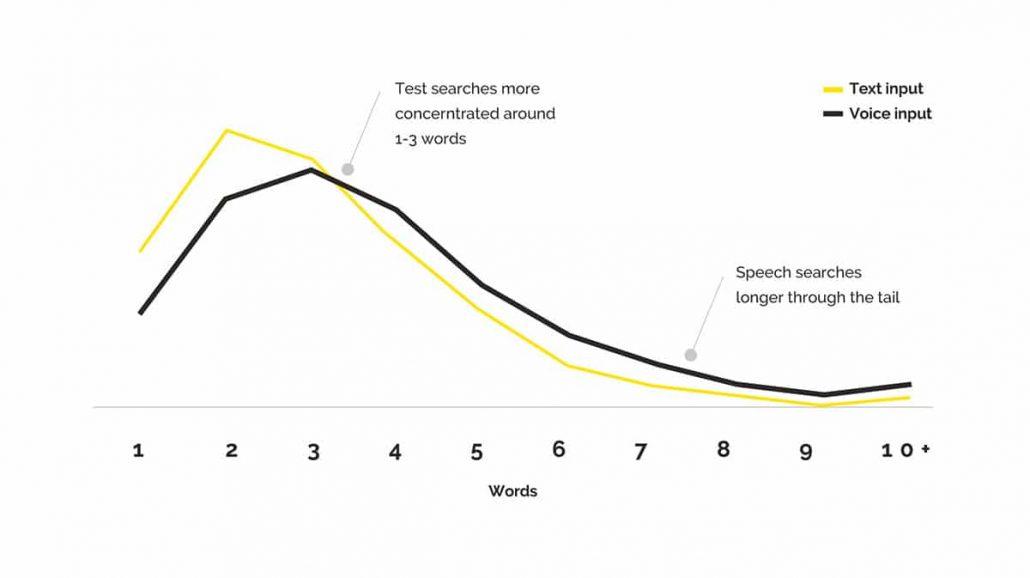Alexa, what is voice search?
Whether it is powering up a laptop or pulling a smartphone out of a pocket to type in a query, there has always been a certain amount of friction in search.
Voice search seeks to end this. Rather than tapping a query into a real or virtual keyboard, voice lets users initiate a search by speaking a question to the personal assistant on a device or search page.
According to Bing, voice search is more than three times faster because people can speak at 110-150 words per minute, compared to typing which allows for approximately 40 words per minute.
This technology was in development for many years and is now integrated into online search services, mobile devices and smart speakers, as well as a host of home appliances that can be controlled using voice commands. Voice functions range from asking to have a song played to reading out the news headlines, or an information request like: ‘What time does the library open?’ Those who have home automation systems can adjust their heating or turn off the lights.
Does voice search actually work?
The technology is now at a point where in 2017 it surpassed the 95% accuracy rate it needs to work well enough to be accepted by users. That is to say, 95% of the time, the voice assistant will be able to understand and interpret your question accurately. Interestingly, 95% is the comprehension rate between human beings. This means voice technology adoption is growing fast. So fast, in fact, that Comscore estimates that half of all searches will be conducted via voice as early as 2020. To put that in perspective, just 20% of Google searches were initiated by voice in 2016. While predicting the future is always open to interpretation, voice search is certainly improving in functionality and increasing in popularity.
What does voice search mean for brands?
For brands, voice is the next wave of disruption. As consumers start to speak questions into a device, search will fundamentally change.
This is a massive opportunity, but it needs executives to completely revaluate marketing strategy.
The first and perhaps most obvious element to tackle is that Alexa, Google or Siri will read out a single answer to each search enquiry. This means search is moving away from being a digital marketing channel where it is considered good to be seen within the first couple of answers or at least on the first page of results.
When there is just a single answer being read out, the goal is no longer to be in the top few answers, rather brands want to be THE answer. That said, the future may be more forgiving, with Google recently joining Amazon and Facebook in launching a smart speaker with a screen which can include additional links. However, searches will be dominated by one or a small handful of results because voice is all about taking users to an answer, rather than giving multiple options that a user can then trawl through.
This change in the search user experience means that brands are going to have to align content with the new wave of enquiries. When people type, they typically shorten their query by reducing it to just the essential keywords, e.g.’ local cinema times’. Speech, however, is often longer and can frequently be twice as long as a typed query. ‘What is playing at my local cinema?’
What does voice search mean for content marketing?
This means that brands have to ensure their content strategies are still fit for purpose by targeting the specific questions people have around different services and products rather than related keywords.
It also requires brands to think long-term and strategically about how their brand can become the generic name people search for when speaking an enquiry out loud. Whether it’s being the Levi’s in jeans, the Barbour of waxed jackets or the Mac of personal computers; getting a brand’s name to be front of mind for a consumer is the task brands face.
Although this has long been a key goal of the marketing team, it is taking on new meaning now as search users become more conversational. There is only one answer being offered to consumers and so if they are going to use a brand term, and it isn’t one of yours, then in regards to voice search there is no reward for appearing as a link below the top result.
For this reason, many brands are developing ‘skills’ through which a user can ask their personal assistant to ask a brand to perform a task. It might be asking Alexa to get a travel brand, such as Expedia, to look up and book a hotel or an insurance company to send a quote.
Voice search is a case of winner takes all. Companies are going to have to work hard to be the brand on the tip of a customer’s tongue.




